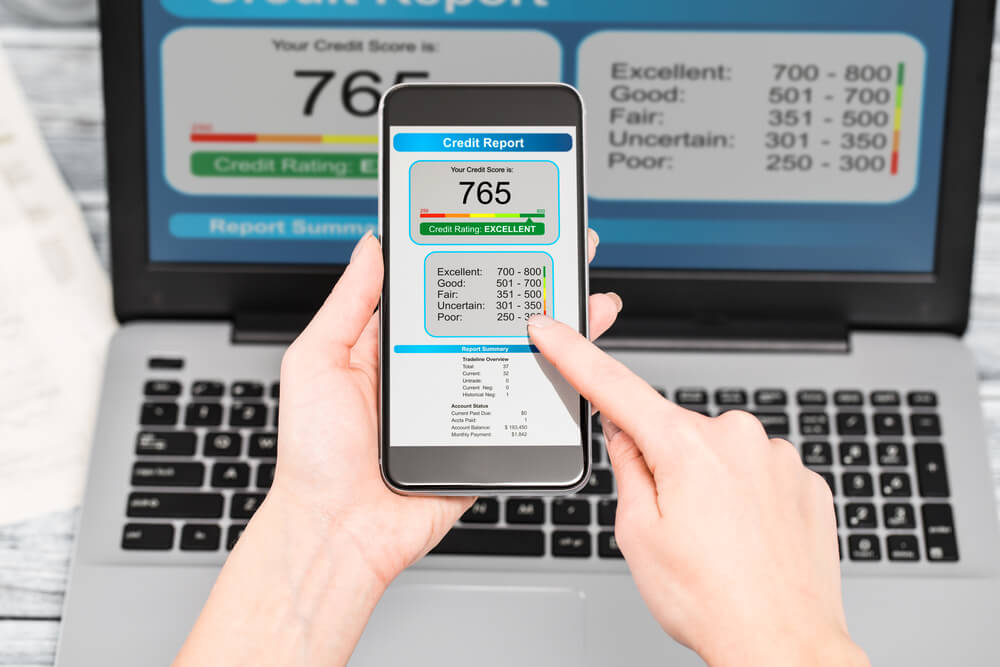There are a lot of benefits of refinancing auto loans, but you need to make sure you are in the right position to do so successfully. Refinancing car loans simply mean you are taking out a new loan with better parameters, retiring the old one by paying it off with the new one and benefiting off the change in interest rates, timetables, and so on. So before we address the process of auto loan refinancing, let’s first determine if you even should. Keep reading to learn more about refinancing your auto loan.
Should I Refinance My Auto Loan?
When it comes to auto loan refinancing, there are a few things you need to think about before you decide if this is the option for you. The first thing you should ask is what is your credit score like? Has it improved since you took out your initial auto loan? Let’s say that you took out your loan last year, and for 12 months you have paid on time, including interest. If this is you, your credit will have increased since your previous approval, and you will be in a position for a better interest rate and timetable.
Plus, as time has passed, other influencers will also have potentially lowered interest rates on auto loans, giving you more lenders to choose from. The questions you really want to ask yourself include: Is your credit average or above? Are you having difficulty keeping up with your monthly bills? Was your initial offer not the best? Has your financial situation improved? If your answer to most of these is yes, then it wouldn’t be a poor idea to consider refinancing your auto loan.
Benefits Of Refinancing Auto Loans
The two big benefits include your interest rate and time available on the auto loan. There are two different goals here: one is saving money in the short-term, and the other in the long-term. If you’re wanting to save money for a large purchase, or simply put more into your savings by the end of the term of your loan, then saving in the long-term will provide you with financial relief; however, if you are having difficulty keeping up with your monthly bills, then financial aid in the short-term is what you’re after.

Lower Interest Rate On Your Auto Loan
What are the benefits of refinancing car loans? Well, as previously stated, you have some mighty potential in finding a better interest rate if you haven’t sunk your credit score. Why is this important? Your interest rate is money on top of what you owe, and the higher it is, the more you lose. Let’s say that you owe $20,000 on your auto loan and your interest is 6% over the span of 60 months. You will be paying $333 a month towards your loan, and $53 extra in interest, making your total payments $3,199.
Now let’s say you refinance that loan for 3% interest, and because you’re more financially stable than before, you will be paying off your loan over 36 months instead. The total interest you will be paying on that loan equals $938. So, by speeding up the timetable and reducing the rate, you’re saving $2,000 that can go towards your savings. There are a lot of tools on the internet that can assist you in understanding how big of an impact refinancing can have on your money situation, such as a refinance calculator.
Longer Timetable On Your Auto Loan
In the event that you need a longer time to pay back your loan because your monthly payments are too high, refinancing your auto loan might be the solution to your problem. Unfortunately, you don’t get the benefit described in the above section of saving more money over the long-term, but so long as you are able to acquire a lower interest rate than the one you currently have, you can still make a better deal out of refinancing.
The biggest downside to extending your timetable on your auto loan is the potential of owing more on your loan and interest than what the car is worth over time. As soon as you drive off the lot with your new car, depreciation sets in and your car is no longer worth its initial value. Depreciation is unavoidable, but making sure you don’t overpay an exurbanite amount because of a long loan term is essential in avoiding financial ditches.

Why Hold Off On Refinancing?
If you have already paid off the majority of what you owe, chances are refinancing auto loans won’t save you a lot of money. The bulk of interest is often paid during the beginning and middle of paying off an auto loan, so refinancing won’t do you a lot of good if you have exceeded that point. Similarly, if your car has become older and has a ton of miles on it, then the depreciation might render your car obsolete for refinancing.
Lastly, if the fees involved in refinancing your auto loan outweigh the overall benefits, then you should definitely stick with your initial loan payments. Having prepayment penalties on your current loan, paying refinance fees, and being cursed with precomputed interest fees could all make refinancing your current auto loan a financial fiasco for you and your financial situation rather than a savvy solution.
Decide Whether Refinancing Is For You
You should take a seat in front of your computer, calculate your credit score, take a look at your savings and income, and do the math to see if first and foremost you can apply to refinance your auto loan. After reviewing your loan agreement, if the fees do not outweigh the benefits of refinancing, then first and foremost attempt to refinance for a shorter term at a lower interest — that’s where you’ll save the most money.
Finding an alternate installment loan that provides a better payment plan is important, so make sure you do your research and find a credible lender. While that is the optimal situation, you can, of course, utilize the refinancing to better manage your monthly expenditure. While you certainly won’t save as much money in the long-term, it will at the very least make your life easier in the interim.
Note: The content provided in this article is only for informational purposes, and you should contact your financial advisor about your specific financial situation.







